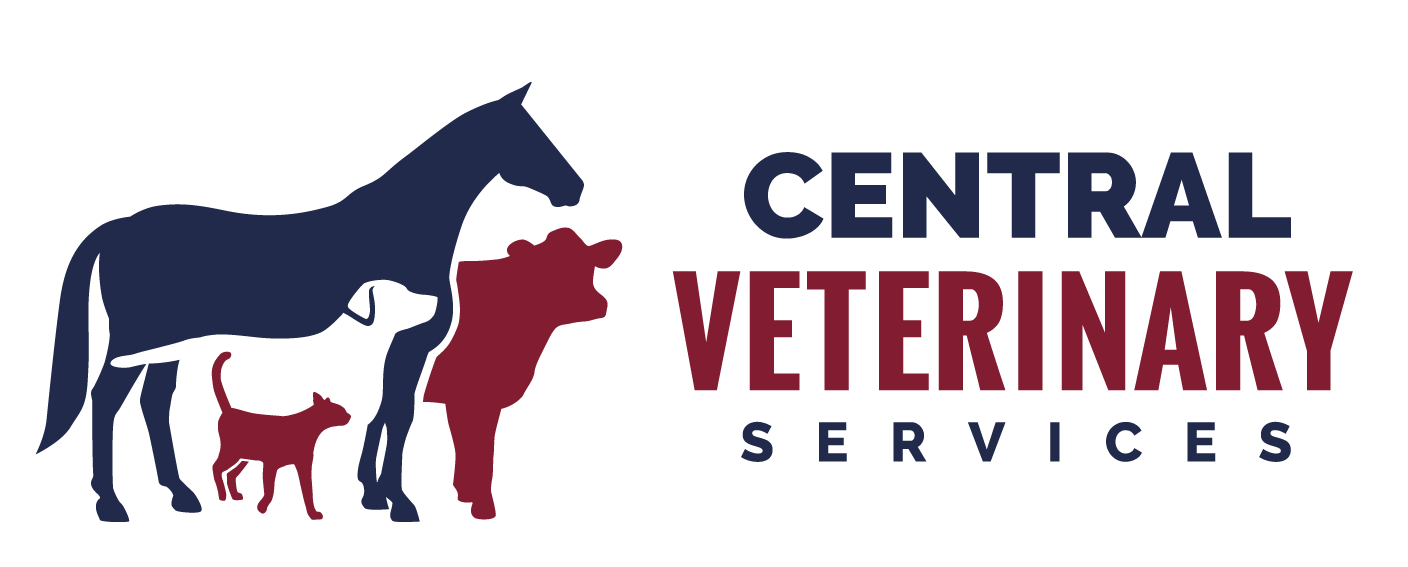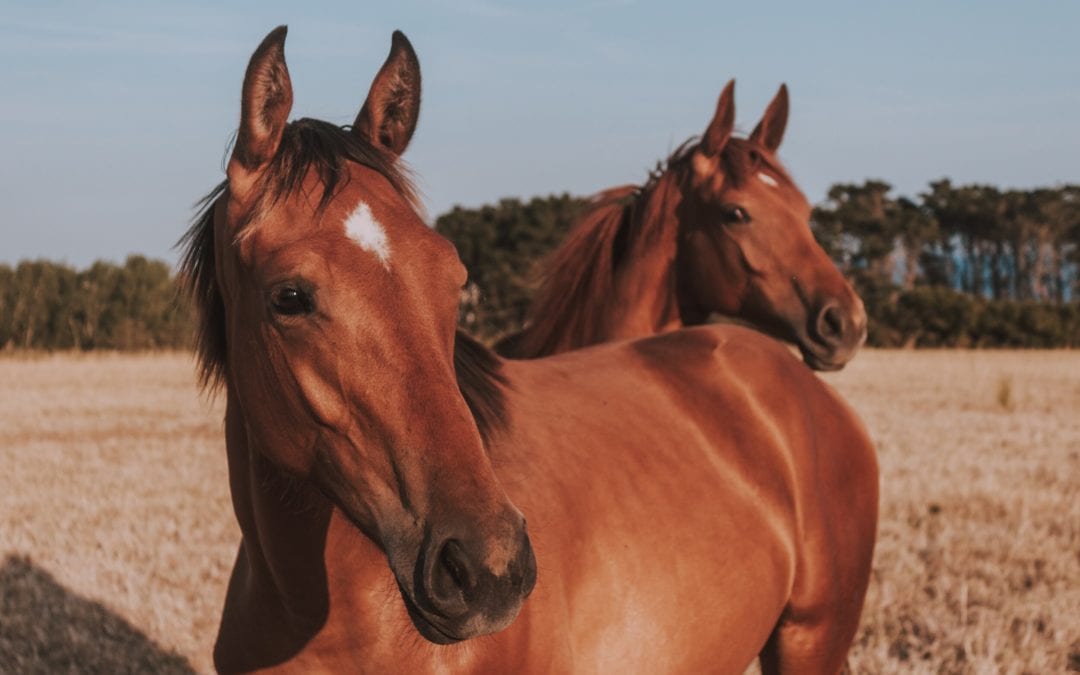Equine vaccines are split into two main categories: Core and Risk-Based.
Core vaccines are recommended to all horses, no matter their lifestyle.
According to the AVMA, core vaccinations are those “that protect from diseases that are endemic to a region, those with potential public health significance, required by law, virulent/highly infectious, and/or those posing a risk of severe disease. Core vaccines have clearly demonstrated efficacy and safety, and thus exhibit a high enough level of patient benefit and low enough level of risk to justify their use in the majority of patients.”
Risk-based vaccines are considered for any horses that may be more at risk for certain diseases that don’t fall under the core category. They are more ‘life-style’ based vaccines for diseases that not all horses will be at risk for.
Senior horses require regular vaccinations, even more so than younger horses. As a horse age, they experience a decline in their immune function – this is called immunosenescence. Along with the decline in function, they have an increase in inflammatory factors in their body that leads to a chronic, low-grade inflammation which is termed ‘inflame-aging’. These changes contribute to common age-related conditions that we see in the senior horse and dampens their immune response to vaccines which means vaccines can be more important than ever to protect our senior horses from common conditions.
CORE VACCINES INCLUDE:
1) Tetanus:

Tetanus is caused by the bacteria Clostridium tetani which can be found in soil. It causes disease by getting into open wounds, then as the oxygen level decreases in the deep wound, the bacteria release a neurotoxin. The neurotoxin causes contraction and spasms of muscles, which affects the horse’s overall quality of life and ability to function. Recovery from tetanus is about 20% when provided with supportive care.
Vaccination protocol:
Adult Horses:
-
If unvaccinated, receive an initial vaccine then a booster in 4-6 weeks
-
Annual revaccination
Foals:
-
Initial vaccination 4-6 months of age
-
Booster in 4-6 weeks
-
Booster at 10-12 months of age
-
If the mare was unvaccinated, start vaccinating at 3-4 months of age
2) Eastern Equine Encephalitis (EEE), Western Equine Encephalitis (WEE)
EEE and WEE are viruses that are spread by biting insects, most commonly mosquitoes. It is not spread directly between horses. The virus causes neurologic signs. The prognosis for WEE is fair with supportive care, while the prognosis for EEE is poor.
Vaccination protocol:
Adult horses:
-
If unvaccinated, receive an initial vaccine then a booster in 4-6 weeks
-
Annual revaccination
Foals:
-
Initial vaccination at 4-6 months of age
-
Booster in 4-6 weeks
3) West Nile Virus (WNV)

WNV is a virus that is spread by mosquitoes. It is not spread directly between horses. WNV causes anorexia, depression, neurologic signs. The fatality rate is 33%, but there can be residual neurologic effects in 40% of horses that survive the initial illness.
Vaccination protocol:
Adult horses:
-
If unvaccinated, receive an initial vaccine then a booster in 4-6 weeks
-
Annual revaccination
Foals:
-
Initial vaccination at 4-6 months of age
-
Booster in 4-6 weeks
4) Rabies
Rabies is a virus that is spread by bite wounds from an infected animal. Clinical signs of rabies can appear in two forms; Dumb (depression/stupor) and Mad (mania/aggression). There is no cure for rabies.
Vaccination protocol:
Adult horses:
-
Single-dose with annual revaccination
Foals:
-
If the mare was vaccinated: Initial dose at 4-6 months of age, booster in 4-6 weeks
-
If the mare was unvaccinated: Initial dose at 4-6 months of age, then annual revaccination
RISK-BASED VACCINES INCLUDE:
1) Influenza
Equine influenza is a virus that is transmitted directly by horse to horse contact, or by fomites (inanimate objects with the virus on their surface such as brushes, buckets, etc). Equine influenza causes fever, depression, anorexia, cough. The risk of contracting influenza occurs when there is a commingling of horses such as at shows or sales.
Vaccination protocol:
Adult horses:
-
If unvaccinated, receive an initial vaccine then a booster in 3-4 weeks
-
Annual revaccination, or more often if high risk
Foals:
-
Initial vaccination at 4-6 months of age
-
Booster in 3-4 weeks
2) Equine Herpesvirus (EHV) 1 & 4
EHV is a viral disease of which we see two main strains – EHV-1 and EHV-4.
EHV-1 causes respiratory and neurologic signs and can also cause abortion in pregnant mares.
EHV-4 primarily causes respiratory signs, with a much smaller incidence of neurologic signs and abortion. Signs are most commonly seen in horses under 5 years of age. Older horses infected with EHV-4 can spread the virus without showing signs of infection.
EHV can be spread directly between horses through respiratory secretions or by fomites. The risk of contracting EHV occurs when there is a commingling of horses such as at shows or sales, or housing at a barn where there is frequent movement of horses on and off the premises.
Vaccines for EHV-1 help to reduce viremia and nasal shedding of the virus, though no vaccine is on a label to prevent the neurologic form of the disease.
Vaccination protocol:
Adult horses:
-
If unvaccinated, receive an initial vaccine then a booster in 3-4 weeks
-
Annual revaccination, or every 6 months if high risk
Pregnant mares:
-
Vaccination with EHV-1 vaccine at 5, 7, and 9 months of gestation
Foals:
-
Initial vaccination 4-6 months of age
-
Booster in 4-6 weeks
-
Booster at 10-12 months of age
3) Strangles
Strangles are caused by the bacteria Streptococcus equi subs equi. The clinical signs include fever, nasal discharge, enlarged lymph nodes. It is spread by direct horse-to-horse contact or by fomites. It has a low mortality rate. The risk of contracting strangles occurs when there is a commingling of horses such as at shows or sales.
Vaccination protocol:
Adult horses:
-
If unvaccinated, receive an initial vaccine then a booster in 3-4 weeks
Foals:
-
Initial vaccination at 6-9 months of age
-
Booster 3-4 weeks after initial
-
Booster at 11-12 months of age
Written by Dr. Kristen Wilson
Learn more about Dr. Kristen Wilson here.


